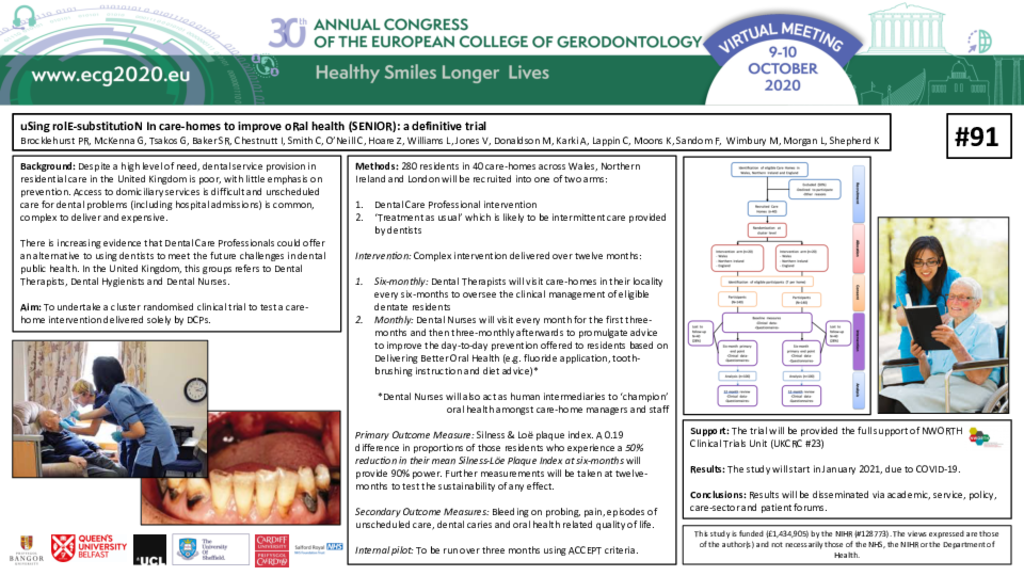Background and aim: Despite a high level of need, dental service provision in residential care in the United Kingdom is poor, with little emphasis on prevention. Access to domiciliary services is difficult and unscheduled care for dental problems (including hospital admissions) is common, complex to deliver and expensive. There is increasing evidence that Dental Care Professionals (DCPs) could offer an alternative to using dentists to meet the future challenges in dental public health. The aim of this study is to undertake a cluster randomised clinical trial to test a care-home intervention delivered solely by DCPs. Methods: 280 residents in 40 care-homes across Wales, Northern Ireland and London will be recruited. Care-homes will be randomised into one of two arms: DCP intervention or ‘treatment as usual’ using a dynamic adaptive algorithm. The primary outcome will be the Silness & Loë plaque index. Secondary outcomes will include bleeding on probing, pain, episodes of unscheduled care, dental caries and oral health related quality of life. Five completers per care-home provides 90% power to detect a 0.19 difference in proportions of those residents who experience a 50% reduction in their mean Silness-Löe Plaque Index at six-months. Further measurements will be taken at twelve-months to test the sustainability of any effect seen. The trial will have an internal three-month pilot with stop/go rules using ACCEPT criteria. Dental Therapists will visit care-homes in their locality every six-months and Dental Nurses will visit every month for the first three-months and then three-monthly afterwards. The former will oversee the clinical management of eligible dentate residents, whilst the latter will promulgate advice to improve the day-to-day prevention offered to residents based on Delivering Better Oral Health (e.g. fluoride application, tooth-brushing instruction and diet advice). Dental Nurses will act as human intermediaries in the care-homes to ‘champion’ oral health amongst care-home managers and staff. Results: The study will start in January 2021, due to COVID-19. Conclusions: Results will be disseminated via academic, service, policy, care-sector and patient forums. This study is funded (£1,434,905) by the NIHR (#128773).
- 45 views



